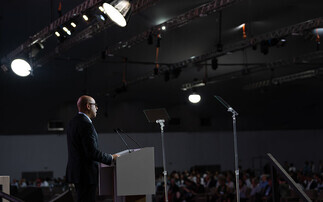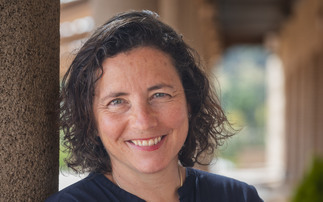UN releases 'streamlined' version of key negotiating text
Hopes this year's UN climate summit in Paris will deliver an ambitious new international accord received a boost yesterday, as the UN published a 'streamlined' version of the crucial negotiating text underpinning the talks.
Late last night, the Co-Chairs of the group charged with delivering an agreement released what the UNFCCC described as "a consolidated version of the formal "Geneva" negotiating text as a tool to help governments in their negotiations".
The Co-Chairs Ahmed Djoghlaf and Daniel Reifsnyder had been tasked with delivering a new text after the most recent round of negotiations in Bonn struggled to streamline the lengthy text.
However, since then a series of bi-lateral meetings between key players and a meeting of ministers in Paris this week are understood to have delivered some progress towards an agreement being reached.
The UNFCCC said the new text, which still runs to 83 pages and includes an array of different options for negotiators to consider, "provides for the first time clarity on what could be contained within the emerging legal agreement in Paris".
"It also clarifies what decisions with immediate effect could be taken at the moment the agreement is adopted," the UN's climate secretariat added in a statement. "Finally it starts to identify what further decisions will need to be taken to make the Paris Agreement fully operational before it enters into effect in 2020.
"This could mean, for example, that new commitments that boost the response to climate change would be enshrined in the agreement, but the details of how these commitments would be implemented as well as the details of any new arrangements to support implementation are captured in an accompanying decision."
The text, known officially as the Scenario note on the tenth part of the second session of the Ad Hoc Working Group on the Durban Platform for Enhanced Action, will now be used as a basis for the next formal round of talks in Bonn in late August.
The text covers all aspects of the proposed agreement, including mitigation, adaptation, finance, technology, capacity building, and transparency of action and support, and builds on widely accepted plans to structure the new agreement around national climate action plans, known as INDCs.
"As part of the agreement, every country is expected to contribute now and into the future, based on their national circumstances and with adequate financial and technology support, to bring down global greenhouse gas emissions in line with the ultimate goal and to adapt societies and economies to existing and future climate change," the UNFCCC stressed.
The text also comes at the end of a week in which Ministers indicated some progress had been made on the issue of how to periodically assess progress on INDCs to ensure promises emissions reductions are being delivered.
Jennifer Morgan, global director for the climate program at the World Resources Institute, welcomed the new text as further evidence the talks were making encouraging progress.
"This streamlined agreement text gives delegates a strong foundation to advance the climate negotiations," she said in a statement. "The co-chairs have cut through the clutter to make the text more coherent, clarifying the key choices to be made. Coming shortly after a positive ministerial meeting, negotiators should use this text to keep the momentum going ahead of the climate summit in Paris. The co-chairs have separated what goes into the core Paris agreement from other key decisions to be taken by the COP and have created a clear structure for Parties to negotiate more efficiently and effectively."
However, concerns remain negotiators have a long way to go to finalise agreements on how to mobilise sufficient levels of climate funding and deliver a treaty that is regarded as offering sufficient support for those poorer nations facing the worst impacts of climate change.
Dirk Forrister, chief executive and president of emissions trading association IETA, warned the text was continuing to marginalise carbon market mechanisms that could help mobilise investment and curb emissions, primarily by better integrating existing carbon markets.
"We welcome efforts to streamline and consolidate the negotiating text - especially as there are only 10 more official negotiating days before the Paris conference," he said in a statement. "However, we remain concerned at the lack of clarity on the use of markets and tools to accelerate links between systems, such as common accounting rules and project crediting mechanisms.
"For the past year, the private sector all around the world has voiced strong support for policies that put a price on carbon, because they give economic signals about the value in reducing emissions. Enabling links between existing and future markets would lead to faster emissions reductions at even lower cost, allowing countries to go further while keeping costs down. We urge negotiators to move these elements into the agreement or decision texts."
This article is part of BusinessGreen's Road to Paris Hub, which is hosted in association with PwC









